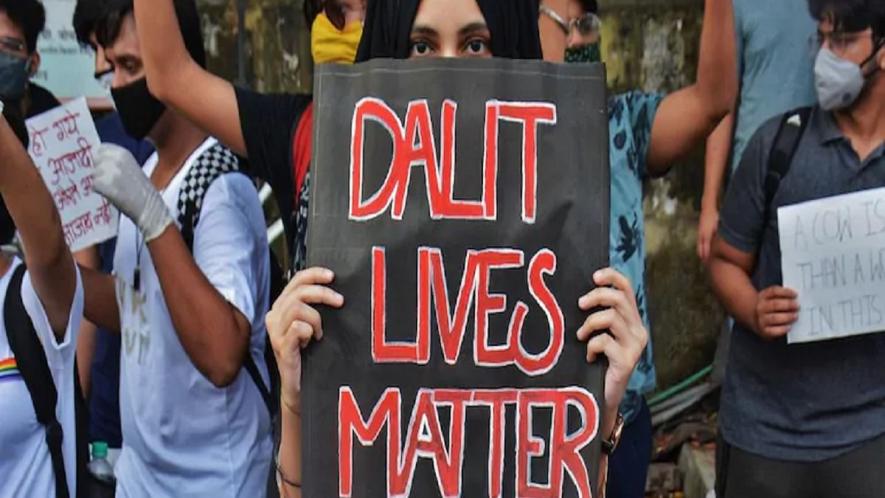‘Protect Dalit Rights in Letter and Spirit,’ Demands Untouchability Eradication Front in Tamil Nadu

Representational use only.
Tamil Nadu Untouchability Eradication Front (TNUEF) has released a ‘dalit social justice manifesto’ ahead of the assembly elections in the state. The manifesto was released on February 11, the death anniversary of M Singaravelu, a trade union and communist leader.
The state has a scheduled caste (SC) population of 20.01%, higher than the national average of 16.6%. From caste walls and fences, honour killings, discrimination of elected representatives, snatching panchami lands away, to manual scavenging, the untouchability practices in Tamil Nadu have no bounds.
The manifesto highlights the need to ensure the implementation of the existing laws to bring an end to such atrocities against the dalits and guarantee their rights. The manifesto deserves attention with the state continuing to have a very bleak record of conviction in cases relating to atrocities against the dalits.
Saying that more than 600 villages in the state are still practicing untouchability, the manifesto throws light on the discrimination in governance as well. The organisation has demanded to ensure the rights of dalits in access to education, employment, land and work towards self-reliance in economical aspects.
The TNUEF has called upon major political parties to incorporate the rightful demands of the dalit community in the election manifesto.
ENSURE JUSTICE FOR THE AFFECTED
The number of caste atrocities has always remained high in Tamil Nadu, including murders, damage to their property and attack on their households. The implementation of the SC/ST (Prevention of Atrocities) Act, 1989 has been dismal regarding such attacks on dalits.
K Samuvel Raj, general secretary of TNUEF, says, “The Act should be implemented in letter and spirit. The government should ensure that cases are filed on appropriate sections, and arrest of culprits, protection of the survivors and compensation to them. The conviction in such cases is under 6%, which exposes the holes in implementation of the Act.”
The organisation pointed out that many such cases lodged 20 years ago are still under trial. The government must ensure that the first investigation report is filed within 60 days of the crime and cases must be completed within 120 days, the manifesto demands. Besides, the incidents of honour killings have been on the rise, which needs special attention.
“There are only six special courts across the state now and the government should establish courts in all the districts to ensure justice is delivered quickly”, samuvel adds.
RIGHT TO EDUCATION AND EMPLOYMENT
Education has remained less accessible to the community, with policies favouring privatisation of school and higher education on the rise. The dismal implementation of reservation in higher education institutions like IITs and IIMs are pointed out in the manifesto.
“Denial of quality education to dalits is a shame on our nation. Only education can improve the social and economic status of the oppressed. The poor implementation of reservation for students and faculty in higher education institutions highlight the plight of the community and such basic rights must be ensured”, Samuvel adds.
The manifesto also demands the establishment of special schools and hostels for SC students to ensure they complete their education. “The post matric scholarship must be continued and disbursed on time, to avoid any drop outs,” the manifesto adds.
“The reservation in employment must be ensured”, Samuvel says citing the backlog vacancies existing in state and Union government departments. “Moreover, the reservation for dalits has not increased in spite of increasing population. A law should be enacted to give proportionate reservation. The reservation for Arunthathiyars must be given special attention as well”, he further adds.
ABOLISH MANUAL SCAVENGING
The legally banned manual scavenging practice continues to claim lives in the state. The Prohibition of Employment as Manual Scavengers and their Rehabilitation Act 2013 is in place for the past eight years, however, the practice remains a common affair, with the governments showing no concern to ban them it. The state government has not formulated rules to implement the law, the TNUEF alleges.
In the recent couple of weeks, 6 lives have been lost to manual scavenging, of which 2 were killed inside the government secretariat. The practice of men being asked to get into septic tanks and underground drainages are continuing.
“The railway department of the union government and the local administration department of the state government are continuing this cruel practice. This should be immediately stopped and the workers must be rehabilitated”, Samuvel says.
The government continues to file cases against the contractors who employ manual scavengers, but the practice happens in government offices itself and goes unchecked.
LAND AND LAND RIGHTS PROTECTION
The land rights of the dalits, the reclamation of Panchami lands, which recently got a new lease of life, has been debated for decades. Only 6% of the dalits in the state owns land, showing the urgent need for land reforms in Tamil Nadu.
Moreover, most of the dalit population work as agricultural labourers and in unorganised sectors, which provide very low wage.
Meanwhile, the panchami lands were snatched away by dominant caste members, taking advantage of the illiteracy of the dalits, Samvuel says, demanding that the government should ensure such lands are reclaimed and given back to the deserving people.
The practice of insisting dalits to dig graves, wash dresses for free in villages is stil prevalent in several villages. The manifesto calls upon the political parties to ensure the abolition of such practices.
Other major demands in the manifesto include the right for all to become temple priests, for which a law was enacted by the government of Tamil Nadu. The violence against women finds a prominent place in the manifesto, as dalit women suffer multiple levels of exploitations.
Get the latest reports & analysis with people's perspective on Protests, movements & deep analytical videos, discussions of the current affairs in your Telegram app. Subscribe to NewsClick's Telegram channel & get Real-Time updates on stories, as they get published on our website.
























